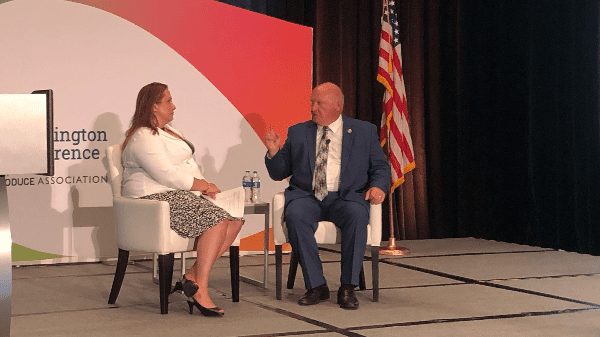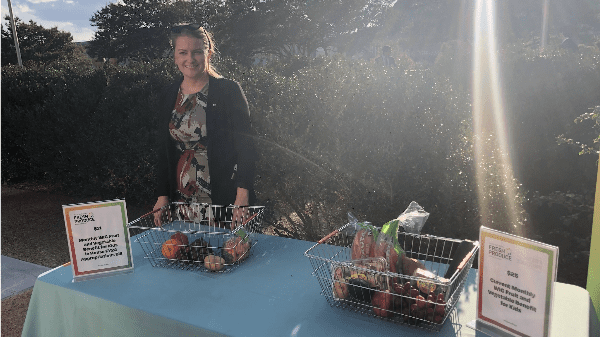WASHINGTON, DC – The farm bill comes up every five years and is set to expire at the end of September.


It was the hottest topic during the International Fresh Produce Association BB #:378962 Washington Conference September 12-15.
Fresh produce used to have little influence in the legislation, but it’s gotten more each time and is now in the position of trying to hold onto its funding.
IFPA equipped conference attendees to speak to Congress members and their staffs about increasing funding for mechanization research, risk management tools, specialty crop block grant increases, and increased access to fresh produce in federal nutrition programs, including produce prescription programs.
Conference speakers took attendees inside the politics of the bill.
Here’s a collection of comments and points about the massive legislation.

Senator Debbie Stabenow, D-MI, chair of the Senate agriculture committee said an appropriations bill passed the Senate but has not in the House, as some Republicans want to rein in the budget.
She acknowledged that SNAP funding went way up to fit the need during the pandemic, but the economy is better now. Nonetheless, the produce industry is strongly against cuts to fresh produce in the WIC program.
Stabenow also urged attendees to fight hard for their funding.
“I don’t think it hurts at all for you to have a bit of an edge” when defending specialty crops versus program crop, which have much higher funding.


Rep. GT Thompson, R-PA, chair of the House agriculture committee, said he and his committee have participated in more than 70 listening sessions in 40 states.
“You don’t want to have people in DC write the farm bill. You want American farmers at the table. If you’re not at the table, you’re on the menu,” he said.
He said he’s confident that the $1.5 trillion bill over ten years will pass in a bipartisan, bicameral way, but it won’t be in the next two weeks. He said the bill will need about a week on the floor of Congress, and that is tough now with so many competing interests.
Thompson said ag labor has to be part of the conversation.
“Without an ag workforce, we have food insecurity, and a country that is food insecure has a problem with national security,” he said.
Other comments without attribution include:
-About 230 of the 535 Congress members have not gone through a farm bill debate before, so significant education will be needed.
-USDA says half the plate should be fruits and vegetables yet produce receives about 5-10 percent of the funding. That’s a big message for the industry to share.
-There’s optimism that the farm bill will pass before the end of the year, but it’s possible it could take until next summer, with temporary funding in the meantime.
-The industry should push hard on increasing the specialty crop block grant program because that funding goes directly to state departments of agriculture, which know how to spend it much better than the federal government.
-The message of “American farmers need to feed Americans” is a strong bipartisan message for Congress members to hear.
-The industry is working more toward improving the agriculture workforce rather than immigration reform.
-Any suggestion to allow workers in the U.S. illegally to work in agriculture legally will get no support from Republican Congress members and even some Democrats because is penalizes workers and companies trying to follow the law.
-Finally, don’t be discouraged by lack of progress on the farm bill. Bills can start and stop in an instant and even come back from the dead.
Editor’s note: A previous version misidentified Sen. Stabenow’s state.



